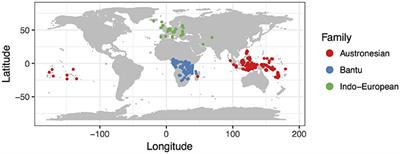EDITORIAL
Published on 28 Sep 2018
Editorial: The Adaptive Value of Languages: Non-linguistic Causes of Language Diversity
doi 10.3389/fpsyg.2018.01827
- 4,692 views
- 5 citations
16k
Total downloads
134k
Total views and downloads
You will be redirected to our submission process.
EDITORIAL
Published on 28 Sep 2018
ORIGINAL RESEARCH
Published on 19 Sep 2018

ORIGINAL RESEARCH
Published on 14 Aug 2018

ORIGINAL RESEARCH
Published on 24 Jul 2018

CONCEPTUAL ANALYSIS
Published on 14 Jun 2018

ORIGINAL RESEARCH
Published on 27 Apr 2018

METHODS
Published on 16 Apr 2018

OPINION
Published on 05 Apr 2018
METHODS
Published on 21 Feb 2018

PERSPECTIVE
Published on 21 Feb 2018

ORIGINAL RESEARCH
Published on 23 Jan 2018

ORIGINAL RESEARCH
Published on 05 Dec 2017


Frontiers in Communication
Psychology of LanguageOffline